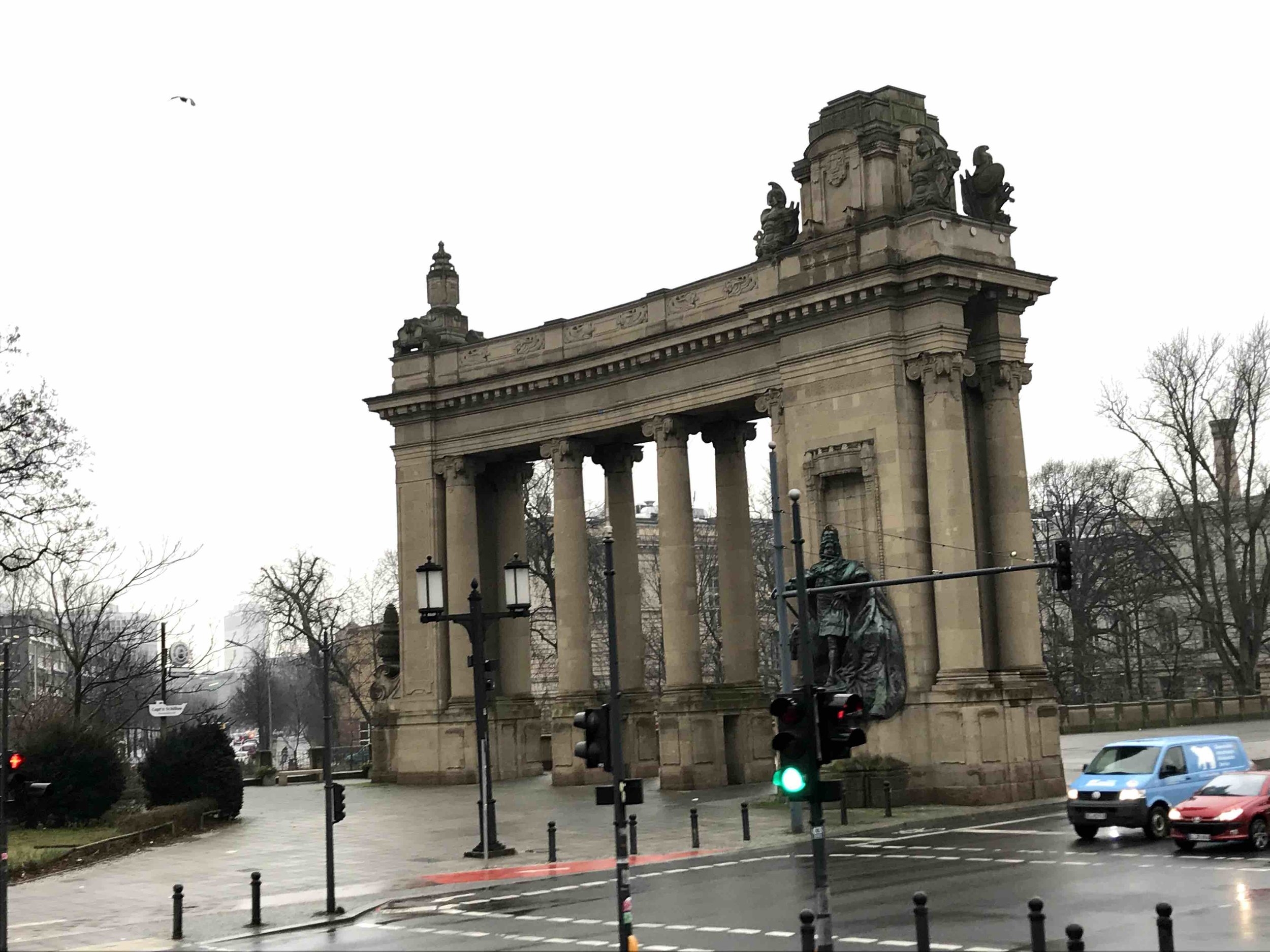Willkomen! The capital of Germany is a bustling metropolis, where you can easily find art, restaurants, museums, an active business district, diverse architecture, history, and nightlife. Berlin embraces modernity and innovation, but also preserves its history of centuries past. If you want to learn more about Germany, see my blogs on Düsseldorf, Cologne and Munich.
The Reichstag is a historic building that houses the Bundestag (Federal Diet or German Parliament). Its function as Germany's legislative center since 1871 was interrupted, first by arson in 1933, which seriously damaged it, then by World War II. After the fall of the Berlin Wall and German reunification in 1990, architect Norman Foster oversaw its reconstruction. It required almost total gutting. This iconic structure grabbed headlines in 1995, when it was completely covered in plastic cloth as an art project of Christo and Jeanne-Claude. Upon completion in 1999, the building resumed its function as the home of Germany's Bundestag. It is the most popular attraction in the country, after the gothic World Heritage Cologne Cathedral. The massive glass dome, which attracts many visitors, was added during this renovation.
HOW TO GET AROUND BERLIN:
Berlin has an excellent public transportation system that consists of the U-Bahn (underground), above-ground local trams, and the S-Bahn (above-ground light rail), and the bus. Unlike Munich, you will never be stuck without public transportation in Berlin. There are U-Bahns, buses and Metrobuses that run all night, even on weekends and holidays. Note that not all lines are open all night, but Berlin does offer more options to night owls.
The official website says: "The free “FahrInfo Plus” app offers freedom of mobility to users of smartphones running on Android or iOS (Apple). It allows you to use your mobile phone as a ticket and find out about connections or save favourite routes and call them up at the tap of a finger." Here is where English speakers can plan their trips online:
The World Clock
The World Clock, also known as the Urania World Clock is a large turret-style world clock located in the public square of Alexanderplatz in Mitte, Berlin. By reading the markings on its metal rotunda, the current time in 148 major cities from around the world can be determined. Since its erection in 1969, it has become a tourist attraction and meeting place. In July 2015, the German government declared the clock as a historically and culturally significant monument.
The Berlin Wall
Germany was divided into 2 countries from 1961 to 1989. To prevent defectors from escaping to the west, the communist East German government built a concrete wall and stationed armed guards there. There were checkpoints along the Berlin Wall where people could cross between East Berlin and West Berlin during the Cold War. The most famous of these was "Checkpoint Charlie."
Memorial to the Murdered Jews of Europe
Also known as the Holocaust Memorial, the array of 2,711 concrete slabs, built on over 4.7 acres, is a powerful memorial to the Jewish victims of the Holocaust. Designed by architect Peter Eisenman and engineer Buro Happold, it opened in 2005.
Real Estate in Berlin
Berlin has the fastest rising property prices in the world, according to real estate consultancy Knight Frank. "Prices in Berlin jumped by 20.5% in 2017," they said. "Berlin, Hamburg, Munich and Frankfurt were ranked in the top 10 in the world for price increases, "displacing cities in China in terms of rising prices. "
US business magnate Warren Buffet has joined the legions of foreign investors attracted to Berlin's residential and commercial property market. He has entered a franchise deal with Rubina Real Estate, a company that helps foreign investors buy high-end residential property in Berlin. This high-profile partnership has been an encouraging sign for investors and market watchers. Despite the impressive trend and statistics, however, other consultants caution that the overheated property market may soon undergo a correction.
Ultimately, experts are divided about the longevity of the German property boom. Nevertheless, there is no doubt that for now, at least in Berlin and the country's biggest cities, the real estate market is hot.
Would you like to learn more about real estate in Berlin? Just ask me!
Ka de We (The Kaufhaus des Westens, usually abbreviated to KaDeWe), is a luxury department store in Berlin. It is the second largest department store in Europe after Harrods in London. It attracts 40,000 to 50,000 visitors every day. There is a beautiful restaurant at the top of it.






































